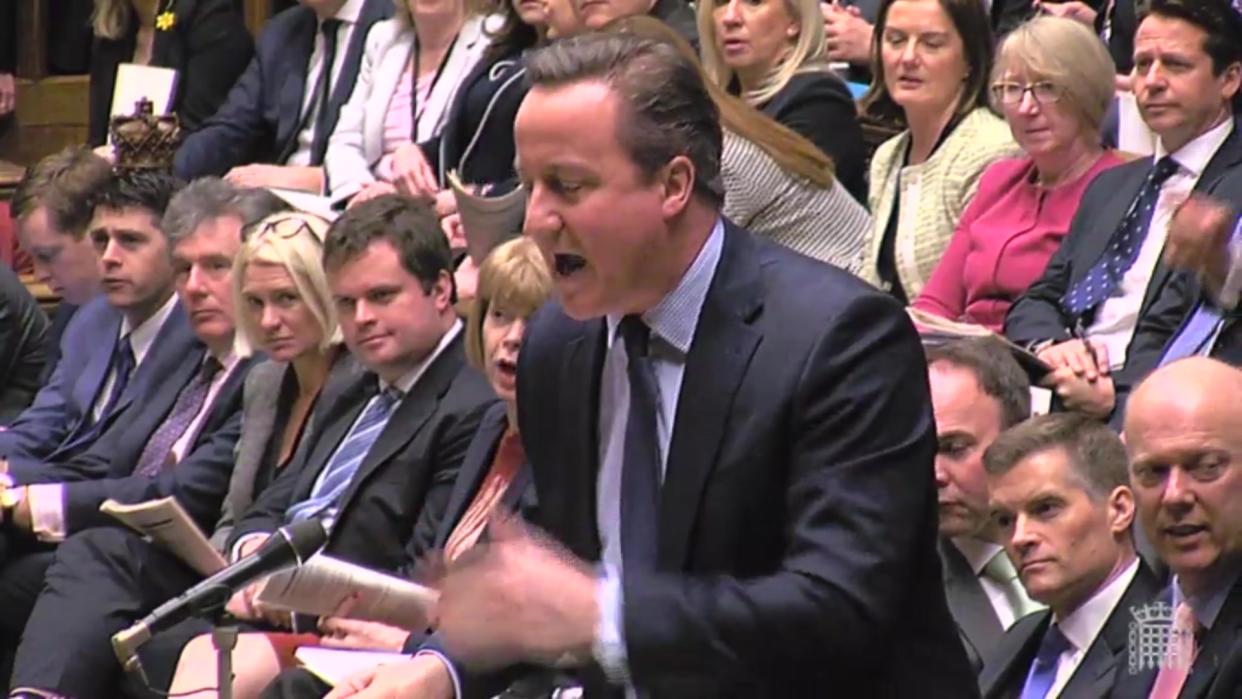PM backs Jeremy Hunt over weekend death figures study 'cover-up' claims

David Cameron has defended Jeremy Hunt after it emerged there was an apparent attempt to cover up the Health Secretary's knowledge of a study on NHS weekend death figures.
The Prime Minister said the only thing Mr Hunt had been guilty of was an "underestimate", as he clashed with Labour leader Jeremy Corbyn during Prime Minister's Questions.
An investigation by the BBC using the Freedom of Information Act shows Mr Hunt knew details of a sensitive study of weekend deaths at least two months before it was published in the British Medical Journal (BMJ).
In July, he said: "Around 6,000 people lose their lives every year because we do not have a proper seven-day service in hospitals."
NHS England said at the time it could not provide the source for the figures.
But an email from NHS England's Seven Day Services Forum project manager Deborah Williams to one of the BMJ study authors has now been revealed, which says: "We were challenged to cite the source of the 6,000 figure and attempted to offer up the most bland statement possible, that would neither confirm nor contradict (Mr Hunt's) statement."
The study author, Domenico Pagano, refused to corroborate Mr Hunt's use of the figures, saying: "It will be inaccurate and counter-productive to quote that our analysis is due to be published in the BMJ shortly, as this is not the case and may seem to interfere with the peer review process."
When published in September 2015, the research actually found that around 11,000 more people die every year within 30 days of admission to hospital on Friday, Saturday, Sunday or Monday compared with other days of the week.
Researchers behind the study said a lack of consultant cover and "reduced" services could be contributing to higher death rates.
But they said it would be "rash and misleading" to conclude that an exact number of deaths could have been avoided.
Mr Corbyn told the Prime Minister he and Mr Hunt had been "rash and misleading" with the figures.
Mr Cameron replied: "The 6,000 figure for excess deaths was based on a question asked by the Health Secretary to Sir Bruce Keogh, the medical director of the NHS.
"Now we have had time to go into these figures in more detail, I can tell you this - that the Health Secretary was indeed guilty. He was guilty of an understatement.
"The true figures for excess deaths at the weekend are 11,000, not 6,000, so perhaps you will now withdraw your totally unjustified attack on the Health Secretary."
Emails seen by the BBC show that officials at Whitehall and NHS England backtracked after Mr Hunt's initial "6,000 deaths" claim, using a combination of figures already in the public domain from 2009 and 2012 to attempt to provide an explanation for it.
NHS England then published this in a "low-key fashion" on their website on August 6.
One official at the Department of Health wrote to another at NHS England, saying: "I am keen to avoid undue criticism of either (the Department of Health) or NHS England."
NHS England has now told the BBC Mr Hunt had advance sight of "headline figures" of the BMJ study prior to it being accepted for publication.
This is despite NHS England's Freedom of Information Officer saying in October last year: "Sir Bruce Keogh did not discuss the study's findings with anyone at the Department of Health at any point before or after the publication of this article."
NHS England told the BBC this October statement was "clearly a mistake, and absurd" and Sir Bruce is "devastated" the focus has now shifted from "the issues of patient safety".
Dr Mark Porter, the British Medical Association's council chairman, said: "This yet again calls into question figures used by the Health Secretary in his bid to push through more seven-day services across the UK, without extra funding or staffing.
"His misleading use of figures has scared patients and the public, and angered NHS staff by misrepresenting the care that's already provided at weekends.
"The fact is, doctors work around the clock, seven days a week, and they do so under their existing contracts.
"If the Government want more seven-day services then rather than using figures designed to worry patients, they should be outlining where the extra doctors, nurses and diagnostic staff and the extra investment needed to deliver them will come from."


